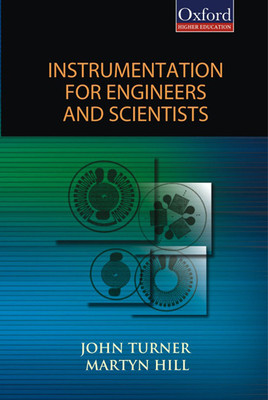Instrumentation For Engineers And Scientists(English, Paperback, Martyn Hill, John Turner)
Quick Overview
Product Price Comparison
Instrumentation for Engineers and Scientists was developed from material prepared for a course in instrumentation for final year mechanical engineering undergraduates. The approach used is to present instrumentation from the viewpoints of both electronics and signal analysis. The sensors and electronic circuits likely to be needed by a final year student for project, and for postgraduate research, are comprehensively covered. This book forms a suitable degree-level text for students of engineering, science or medicine seeking a practical guide to instrumentation. It is also hoped that the book will be of use to practicing engineers in general. The authorsŌĆÖ aim throughout has been to write a book which guides the reader through the intricacies of specifying and selecting an instrumentation system, acquiring without corrupting or distorting it in the process, and applying sensible signal analysis techniques. Examples and case studies are used to illustrate the techniques discussed, including many drawn from real-life instrumentation problems encountered by the authors in engineering, physics and medicine The sequence of chapters follows the flow of data from the primary sensing element, through transduction, signal processing and digital conversion to digital signal analysis techniques. This logical sequence ensures that the design process is undertaken in the correct order, and provides continuity for the reader Key Features Practical approach Covers data acquisition, signal conditioning, signal analysis, as well as physical sensor principles Concise and suitable as an introduction to further detailed study Text mainly concerned with Sensors and not Actuators About the Author John Turner ,Mechanical Engineering Department, Univ. of Southhampton, UK. Martyn Hill ,Mechanical Engineering Department, Univ. of Southhampton, UK. Table of Contents 1. General design of instrumentation systems - error analysis 2. Temperature sensors 3. Displacement sensing 4. Velocity and acceleration transducers 5. Strain measurement techniques 6. Pressure sensors 7. Torque and mechanical power measurement 8. Flow sensors 9. Signal conditioning circuits 10. Signal conversion and data acquisition 11. Signal analysis- frequency domain techniques Index


